The Green Mountain state maybe small but it is packed with United States history.
As one of the six New England states, there are many magnificent things to see and do in the area, and one of those is great education.
For those who are looking to gain an education in Vermont through a Public Health Bachelors degree, you may want to look outside the state borders for a great school.
From Massachusetts to New York and everywhere in between, there is a great school both online and in-person that can help fulfill your dreams of working in Public Health.
Take a look at our list of ten of the best schools for Public Health in the New England area as well as farther south in the nations capital.
1Merrimack College
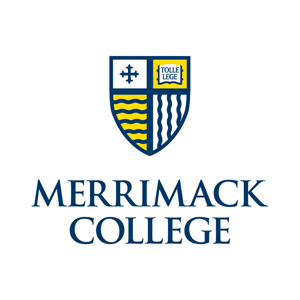
Scholarly students who want a well-rounded private education will love Merrimack College in Andover, Massachusetts.
Even Vermont residents will enjoy the gorgeous campus and stellar education system at this fortified university.
Since it is a private school, it can be a bit more expensive than a public school, and Merrimack College also has an extensive selection process.
If you are one of the best students in your high school or previous university, you will likely be admitted to this fine institution.
A degree from Merrimack College will give you the necessary accoutrements to sustain a successful career in any area you desire.
Those who live science and want to help others learn to live healthier will enjoy the Public Health Bachelors degree program offered here.
Students in this program will learn how to:
- Understand and collect data
- Explore factors that impact health across the world
- Use critical and practical thinking skills
- Interpret, examine, and understand complex dimensions of healthcare
Every course that you take at Merrimack College will lead you one step closer to your dream career.
You can expect to take part in lab work, research opportunities, and courses including:
- Anatomy and Physiology
- Foundations of Healthcare Systems
- Chemistry
- Community Nutrition
Classroom time isn’t your only opportunity to learn and grow at Merrimack College, in fact, every student in the Public Health program will need to participate in an internship, co-op, or practicum that is involved with Public Health in some way.
Having a degree from Merrimack College will open plenty of doors for you in Public Health and healthcare in general, especially in roles such as:
- Health Inspector
- Public Health Analyst
- Hospital Administrator
- Health Organization Marketer
Enrollment
One of the great things about Merrimack College is that there are no test scores required in order to be considered for admission.
All you will need to do is head over to the school’s website to start your application.
It is fairly simple and only requires a little bit of extra paperwork in order to be considered finished, which includes:
- High school transcripts
- Common application secondary school report
- Letter of recommendation
- Essay
Merrimack College has some standards that students must meet before being considered for enrollment, and they are:
- Academic achievement
- Strength of curriculum
- Community involvement
- Extracurricular activities
An interview is also recommended for students looking to join the ranks at Merrimack College.
Fees
Merrimack College is a private school, which means that tuition will be a bit more costly than a public education.
Students who live on campus at Merrimack College will pay $68,170 annually.
This comes out to $272,680 after graduation.
Other fees that may apply for this school include:
- Books – $1,000
- Transportation – $1,000
- Personal expenses – $500
Financial aid and scholarships are available for qualified students.
Contact Information
- Address: 315 Turnpike St. North Andover, MA 01845
- Phone: 978-837-5000
- Website: www.merrimack.edu
2Southern New Hampshire University

Online education is becoming increasingly popular in today’s world, and Southern New Hampshire University is one of the best virtual educations out there.
Headquarters are located in New Hampshire, but Vermont residents will love that you don’t need to travel in order to earn a degree.
In fact, you can do everything right at home, which includes purchasing books and everything else needed for learning.
If you have plans of working in healthcare and want to learn more about Public Health, you’ll be happy to know that Southern New Hampshire University offers a four year Bachelors degree program in that area.
Along with general education classes, students will take part in science based courses such as:
- Statistics for Healthcare Professionals
- Population Health and Cultural Competence
- Evaluation Methods in Public Health
- Biological Concepts for Public Health
One of the unique aspects of a degree from Southern New Hampshire University is that you’ll still need to take part in an in-person internship in order to fulfill your degree requirements.
Work with local healthcare facilities or even government organizations to gain hands-on experience in the field.
After completing all of your classes and working your internship, expect many great doors to open for you in roles like:
- Medical Services Manager
- Health Education Specialist
- Community Health Worker
- Youth Outreach Coordinator
Enrollment
There is no application fee to apply to Southern New Hampshire University.
All prospective students need to do is head over to the website and find the admissions tab.
Once there, you can fill out the application which is quick and easy to do.
Along with your application, you will need to submit the following information:
- Transcripts from previous education or high school
- Proof of GED if applicable
The great thing about Southern New Hampshire University is that students can choose their own start date and there are no late application fees.
Fees
It costs $330 per credit hour to attend this school, and annually that comes out to about $9,900 for full time students.
Military students pay a reduced fee of $231 per credit hour for a yearly cost of $6,930.
At Southern New Hampshire State University the average Bachelors degree takes four years to complete, which means tuition can range from $27,720 for military student to $39,600 for civilian students.
Contact Information
- Address: 2500 North River Rd. Manchester, NH 03016
- Phone: 800-915-7648
- Website: www.snhu.edu
3St. John Fisher University
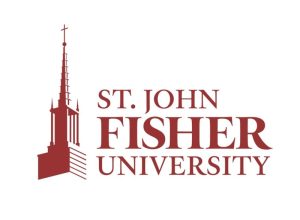
New York offers a beautiful Catholic school by the name of St. John Fisher University.
You don’t need to be Catholic in order to take part in the education here, but you will n need to travel or move to New York because there are no online programs currently available.
The advanced curriculum and diverse student body are advantages that you’ll want to take part of even as a resident of Vermont.
Those looking for a science and evidence based degree will love the Public Health Bachelors degree available at the campus in Rochester.
Each course is designed to build upon each other to take you once step closer to a career you’ll love, and these courses will include:
- Health Literacy Education and Communication
- Public Health Policy
- Health Psychology and Behavioral Medicine
- Populations, Programs, and Health
You won’t just spend your time in class though, students take part in lab work, field work, and internships throughout the course of the four year program.
Graduation from St. John Fisher University will give you the opportunity to work in a multitude of effective Public Health careers such as:
- Education Program Manager
- Program Resource Coordinator
- District Wellness Coordinator
- Integrative Health Practitioner
Enrollment
Prospective students from everywhere can head to the website to apply to St. John Fisher University from first year freshman to transfer, international, veteran, and military personnel.
Academic advisors do ask that you take a tour of the campus to ensure that it is a great fit for you before applying to the school.
If you have decided on St. John Fisher University, then you will need to provide the following information along with your application:
- High school transcripts
- ACT or SAT scores
- Transcripts from previous education if transferring
- Counselor or teacher recommendation letter
- Essay
It should take about two weeks to hear back on your application status.
Fees
Tuition at St. John Fisher University is $38,566 per year.
Since it takes four years to complete a Bachelors degree, the total you will pay for your education here is about $154,264.
Those who choose to live on campus will pay an additional $14,872 per year, or $59,488 after four years.
Other fees that may occur include:
- Books – $650 per year
- Transportation – $500
Veterans and military personnel receive a discount of $250 per credit hour, for a total of $30,000 upon graduation.
Financial aid and scholarships are available for qualified students.
Contact Information
- Address: 3690 East Ave. Rochester, NY 14618
- Phone: 585-380-8000
- Website: www.sjf.edu
4Colby-Sawyer College

Some Vermont residents may be on the lookout for a private education at a public school price.
If that is you, head over to Colby-Sawyer College in New Hampshire to take part in all the festivities happening there.
This four year in person degree program is great for those who want a change of pace but not too much with small town feels and scenic campuses.
At Colby-Sawyer College, you’ll get the chance to partake in research no matter the program you decide to enroll in.
A common yet necessary degree program here is the Public Health Bachelors degree.
Throughout this program, students are provided the opportunity to work with classmates in classrooms and labs in courses such as:
- Epidemiology
- Prevention of Illness and Injury
- Health Research Methods
- Healthcare Systems, Policy and Leadership
Each course in this program is accredited by the New Hampshire Public Health Association so you know everything you learn is up to date and accurate.
After four years and completing an internship, you will be on your way to graduation and accepting a life-long career in a role like:
- Epidemiologist
- Environmental Health Educator
- Patient Care Coordinator
- Health Promotion Specialist
Enrollment
Colby-Sawyer College welcomes all types of applicants to their ranks from first year freshman, to transfer students, and even international learners.
When thinking of applying, head on over to the website and choose the correct application for the type of student that you are.
Filling out the application is easy and can be done right on your computer.
You will need to create an account to complete your application, but everything should only take about twenty minutes of your time.
In order to have a complete application, you will need to provide the following information:
- Official transcripts from high school or previous education
- Recommendation
- Writing sample
- ACT or SAT scores
You will also need to provide a checklist of any extracurricular activities you have been involved in.
Once you have submitted all of the required information, you should hear back from the school in a couple of weeks whether you have been accepted or not.
At which time you will be able to enroll in classes and set up orientation.
Fees
Base tuition at Colby-Sawyer College is $17,500 per year, but with room and board that cost goes up to $35,258.
This means that you will end up paying between $70,000 and $141,032 to attend this university.
Other fees that may apply include technology, health services, and student programs that can all be discussed with an academic advisor.
Financial aid and scholarships are available at this school.
Contact Information
- Address: 541 Main St. New Land, NH 03257
- Phone: 603-526-3000
- Website: www.colby-sawyer.edu
5Simmons University
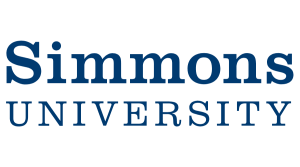
Boston, Massachusetts hosts the old private school by the name of Simmons University.
This school may be small but it is mighty and offers about 50 undergraduate programs for students across the United States.
You will have to travel to Boston in order to take part in the education here, but the curriculum is well worth the move.
At Simmons University, students are welcome to take part in the typical four year Bachelors degree program but there is a second program available as well.
This includes a 5th year which will provide students with a Masters degree.
Both programs are steeped in science and evidence based materials in courses like:
- Health, Illness, and Society
- Foundations of Exercise and Health
- Principles of Biochemistry
- Research Methods
During your senior year, it is required to partake in an internship that will lead you to more hands-on experience in the Public Health realm.
After you have finished the required 120 credit hours at Simmons University, you will be delighted to know you can find a great career in roles such as:
- Patient Care Coordinator
- Cancer Information Specialist
- Environmental Health Educator
- Biometric Health Screener
Enrollment
Before considering enrolling at Simmons University, you may want to take a campus tour to see if the school is right for you.
If you have decided that this is just what you are looking for, the next step is to head to the website to fill out an application.
First year freshmen, transfer students, and even international students are welcome to apply to Simmons University.
There are some requirements to attach to your application, which includes:
- Transcripts from high school or previous education
- Teacher recommendation letter
- Counselor recommendation letter
- Essay
- SAT or ACT scores
If you have all of the above paperwork filled out and ready to go, you will be one step closer to enrolling at Simmons University.
There are application deadlines throughout the year, so keep that in mind when applying.
Simmons University also provides some great online events to keep prospective students in the know.
Fees
100% of first year students at Simmons University have some type of financial aid.
It costs $44,208 per year to attend this school for a total of $176,832 upon graduation after four years.
Some other fees may apply per year for students who attend this university:
- Room and board – $17,104
- Activity fee – $350
- Health and wellness fee – $980
- Health insurance – $4,951
Contact Information
- Address: 300 Fenway Boston, MA 02115
- Phone: 617-521-2000
- Website: www.simmons.edu
6Johnson and Wales University
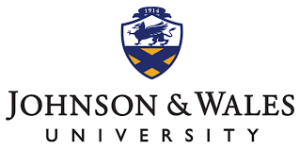
Johnson and Wales University gives students from every state and even across the sea an opportunity to learn through in-person and online formats.
This school is located in Rhode Island, but Vermont residents are welcome to head to campus or stay home and do the online courses necessary for graduation.
As one of the oldest private schools in the United States, you’ll surely be among some incredible alumni if you decide to attend this school.
Johnson and Wales is also considered the number one school for veterans.
One of the base models for Johnson and Wales University is to conduct important research for future generations.
With that being said, if you have a knack for discovery and science, you’ll want to take part in the incredible research done here through the Public Health Bachelors degree program.
This program is perfect for science-minded people who want to do more for this communities.
Throughout the four year program, you’ll take part in general education courses but also specialized classes that include:
- Mindfulness for Health and Well-being
- Comparative Healthcare Systems
- Introduction to Health Professions
- Data and Evidence in Health
It takes 120 credit hours to graduate, and once you have completed all that you will be on your way to a successful career in Public Health.
A degree from Johnson and Wales will provide you the opportunity to gain employment in roles like:
- Infectious Disease Analyst
- Disease Ecologist
- Health Journalist
- Health Education Programmer
Enrollment
It is fairly simple to apply to Johnson and Wales University.
The first thing that you will want to do is head over to the website and fill out an application.
In order to finish up your application, you will need to provide some important information to the school:
- Transcripts from high school or previous education
- Resume
Students are required to have at least 2 years of relevant job experience to be accepted at this university, and a resume is required to be submitted with your application.
There are no late fees as the school has classes that start year round.
Fees
Students will pay $39,792 per year to attend full time.
When you add housing, books, and room and board, this number will go up, speak to an academic advisor about the costs of additional amenities.
Since it takes four years to finish a Bachelors degree, the average graduate of Johnson and Wales University pays $159,168.
Contact Information
- Address: 8 Abbot Park Place Providence, RI 02903
- Phone: 800-342-5598
- Website: www.jwu.edu
7George Washington University

Take a trip to the country’s capital to find George Washington University.
Vermont residents can either live on campus or take classes right at home with the online degree programs available.
This is a great option for those who have a career already established or have a family they need to support.
No matter the style of education you gain at George Washington University, you will have an accredited experience that can surpass state lines.
Within the school, you’ll find the Public Health Bachelors degree, which will take four years to finish.
Students interested in science, sociology, psychology and helping their peers will enjoy classes like:
- Epidemiology
- Management of Health Science Services
- Foundations of Health Equity
- Healthcare Law and Regulation
Studying disease and how to control it will lead to a successful career once you have graduated from George Washington University.
Research and hands-on experience will help you to gain employment in any of the following roles after graduation:
- Public Health Nurse
- Evaluation Specialist
- Intervention Researcher
- Healthcare Policy Analyst
Enrollment
Both traditional undergraduate and non-traditional undergraduate degree programs are available at George Washington University.
Students who want to take part in traditional programs such as first year freshman and transfer students will fill out a specific application while non-traditional students like adult learners will fill out a separate one.
It is easy to fill out the application no matter which one you choose to do, both can be done online and only take about 20 minutes to complete.
Another great step you can take toward your enrollment at George Washington University is to attend a campus tour.
This can also be done online, but there are many ways to do so in person as well.
Along with your application, this school requires that you submit some important information like:
- Essay
- Official transcripts
- ACT or SAT scores
- Letter of recommendation
Once you have completed the above checklist you will be able to check your application status from the website.
An academic advisor will reach out to you with the next steps in the enrollment process, like signing up for classes and extracurriculars.
Fees
Every year that students attend George Washington University they will pay $64,700.
After four years and earning a Bachelors degree, this totals out to $258,800.
Financial aid and scholarships are available for every student at this school.
Contact Information
- Address: 2121 I St. NW Washington, DC 20052
- Phone: 202-994-1000
- Website: www.gwu.edu
8Johns Hopkins University

Baltimore, Maryland boasts the prestigious Johns Hopkins University, which is the country’s first research university.
As soon as the school’s doors opened in 1876, it had students flocking to the campus to learn all types of educational programs from agriculture to history and beyond.
Now a days, students can gain degrees in over 200 programs, and one of those is the Public Health Bachelors degree.
This is a four year program that teaches students how to create and implement healthcare programs for communities and individuals all across the United States and even around the world.
Though you will have to move to Maryland to take part in this educational opportunity, it may not be something you want to miss as a Vermont resident.
Each course is heavy in science and based in evidence, and at Johns Hopkins University, you will take classes taught by knowledgable professors like:
- The Environment and Your Health
- Fundamentals of Health Police and Management
- Comparative Physiology
- Cell Biology
Every aspect of your education at Johns Hopkins University is accredited and top of the line.
With that being said, once you graduate you will be among the scholarly alumni who have found their dream career.
A degree from Johns Hopkins University can afford you any role in Public Health, including:
- Diabetes Educator
- International Aid Worker
- Vaccine Researcher
- Behavioral Research Scientist
Enrollment
Applications are accepted only in certain months at Johns Hopkins University, so you will need to watch out for any deadlines before submitting.
Students are asked to take a tour of the campus before committing 100% to this school, just so they know that they are absolutely sure this is where they’d like to spend their next four years.
If you do want to apply to this amazing school, you will need to head to the website to fill out the application.
Johns Hopkins University considers three parts of each prospective student when looking at applications:
- Academic Character
- Impact and Initiative
- Overall Match
Along with your application, it is important to provide the following information:
- Essay
- $70 non-refundable application fee
- SAT or ACT scores
- Two teacher evaluations
After all of these steps have been completed and submitted, you will hear back from the university within two weeks.
Fees
The average student at Johns Hopkins University pays $20,482 per year to attend.
This includes room and board, which most students take part in at this school.
On average, after graduation, you will end up paying $81,930 to earn a four year degree here.
Other expenses that may occur per year include:
- Books – $900
- Transportation – $700
- Personal – $1,400
Most students require some type of financial aid in order to attend Johns Hopkins University.
Contact Information
- Address: 3400 North Charles St. Baltimore, MD 21218
- Phone: 410-516-8000
- Website: www.jhu.edu
9Liberty University

Liberty University is a private Christian school located in Lynchburg, Virginia.
This may be a hike for Vermont residents, but the school does offer online education for those who want to stay home and earn their degree.
You don’t need to be a Christian in order to fulfill your degree requirements at Liberty University, all faiths are welcome to join the crowd.
Liberty University is quite a large school located in the heart of Lynchburg, with over 45,000 students on campus at any given time.
Since there are so many students, there are also several degrees, over 200 in fact, to take part in.
One of the many award winning degrees available at Liberty University is the Public Health Bachelors degree.
At Liberty University, there are two options for Public Health, students can partake in either:
- Health Promotion
- Pre-clinical
These concentrations will help narrow down your options when it comes to gaining employment after graduation.
Either path you choose will be a perfect fit for you and classes that are science and evidence based will help guide you toward a great career.
A few of the courses that you will be required to take part in at Liberty University are:
- History of Life
- Foundations of Public Health
- Personal Health
- Environmental Hazards and Response
At Liberty University, students also have the opportunity to become certified as a Health Education Specialist.
This can be done by taking the exam that correlates with the certification, but you will need to have taken the majority of your required classes before pursuing this extra accreditation.
It should take about four years to finish a degree at Liberty University, and after you graduate, you will find it easy to gain employment in careers that include:
- Healthcare Social Worker
- Global Health Worker
- Nutritionist
- Pharmaceutical Sales Representative
Enrollment
If you are thinking about attending Liberty University, there are two options for you.
First, you can choose to enroll online or on campus, each having it’s own benefits.
When applying, you’ll want to choose which degree program that interests you so that you can plan accordingly with classes.
Your application should provide the school with your personal information and shouldn’t take more than thirty minutes to complete.
At Liberty University, the admissions criteria are based on:
- Cumulative GPA from high school or college – 3.15 or above
- GED scores if applicable
- SAT or ACT scores – SAT 1020 or above and ACT 20-27
- Trends of grades
- Essay submission
Along with your application, you will want to submit the following paperwork:
- Transcripts from high school or previous education
- SAT or ACT scores
- Admission essay
If you are going to attend Liberty University as a transfer student, it is required that you provide transcripts from your previous university.
It should take about two weeks to hear back from an academic advisor.
Fees
If you plan to attend the Liberty University on campus you will pay $23,800 per year.
Every Bachelors Degree at the school takes four years to complete, so graduates will pay $95,200 in total
If you plan to take part in room and board amenities, it will be an additional $6,510 to $8,700 per year depending on the plan you choose.
Online students will pay $14,896 per year, for a total of $59,584 after four years of education.
Some other fees that you may incur at Liberty University are:
- Activity/student center fee – $800
- Student health fee – $340
- Books – $1,400
- Supplies – $600
Contact Information
- Address: 1971 University Blvd. Lynchburg, VA 24515
- Phone: 833-260-4274
- Website: www.liberty.edu
10Rivier University
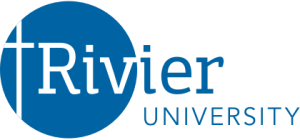
Another private institution located in the great state of New Hampshire is Rivier University.
This small school hosts out 1,500 students a semester and is a great place to get away and explore your inner self.
Vermont residents will love the at home feeling if Rivier University, and the quiet hometown vibes of Nashua, New Hampshire.
It is required to move to New Hampshire for Vermont residents, as there are no online degree options at this time.
However, you’ll get a lot out of the small campus here with individualized attention and many different extracurriculars to look into.
One of the many great Bachelors level programs you’ll see at Rivier University is in Public Health.
Public Health is a rising concern, and is a great stepping stone for people who want to take part in healthcare and learn about keeping communities safe.
This four year program provides a science curriculum that is based in knowledge, research, and evidence.
You’ll take part in classes that have a wide range of focus such as:
- Global Health
- Epidemiology
- Social and Public Policy
- Health Systems and Services
Each class is designed to help students develop skills to protect individuals, families, and communities in case of emergency, disease outbreak, or every day life.
After graduating from Rivier University, you will be on your way to a successful career in New Hampshire, Vermont, or around the world in a role like:
- Substance Abuse Counselor
- WIC Case Manager
- Health Program Specialist
- Department of Health Manager
Enrollment
Before considering enrollment at Rivier University, you should schedule a campus tour to ensure that this is the right school for you.
If you have already decided to attend this school, head over to the website to fill out an application.
There, you will find a simple application process that requires you to create an account.
This way, you will be able to edit and restart your application if necessary.
Along with your personal information, don’t forget to provide transcripts from high school and test scores.
It should take about a half an hour to finish your application, and then once submitted you should hear back from the school in about two weeks.
Fees
The annual cost of base tuition at Rivier University is $36,508.
Room and board are separate, with rates between:
- Room – $6,875-14,200
- Dining Plan – $6,532-6,856
Other fees that may apply are:
- New student – $260
- Late payment – $250
- Technology – $258
- Health Insurance – $200
Contact Information
- Address: 420 South Main St. Nashua, NH 03060
- Phone: 603-888-1311
- Website: www.rivier.edu
Final Thoughts
Vermont may be small and may not have all of the educational platforms needed, but the surrounding states don’t disappoint.
We hope that this list has helped you narrow down your options for Public Health Bachelors degrees for Vermont residents.









